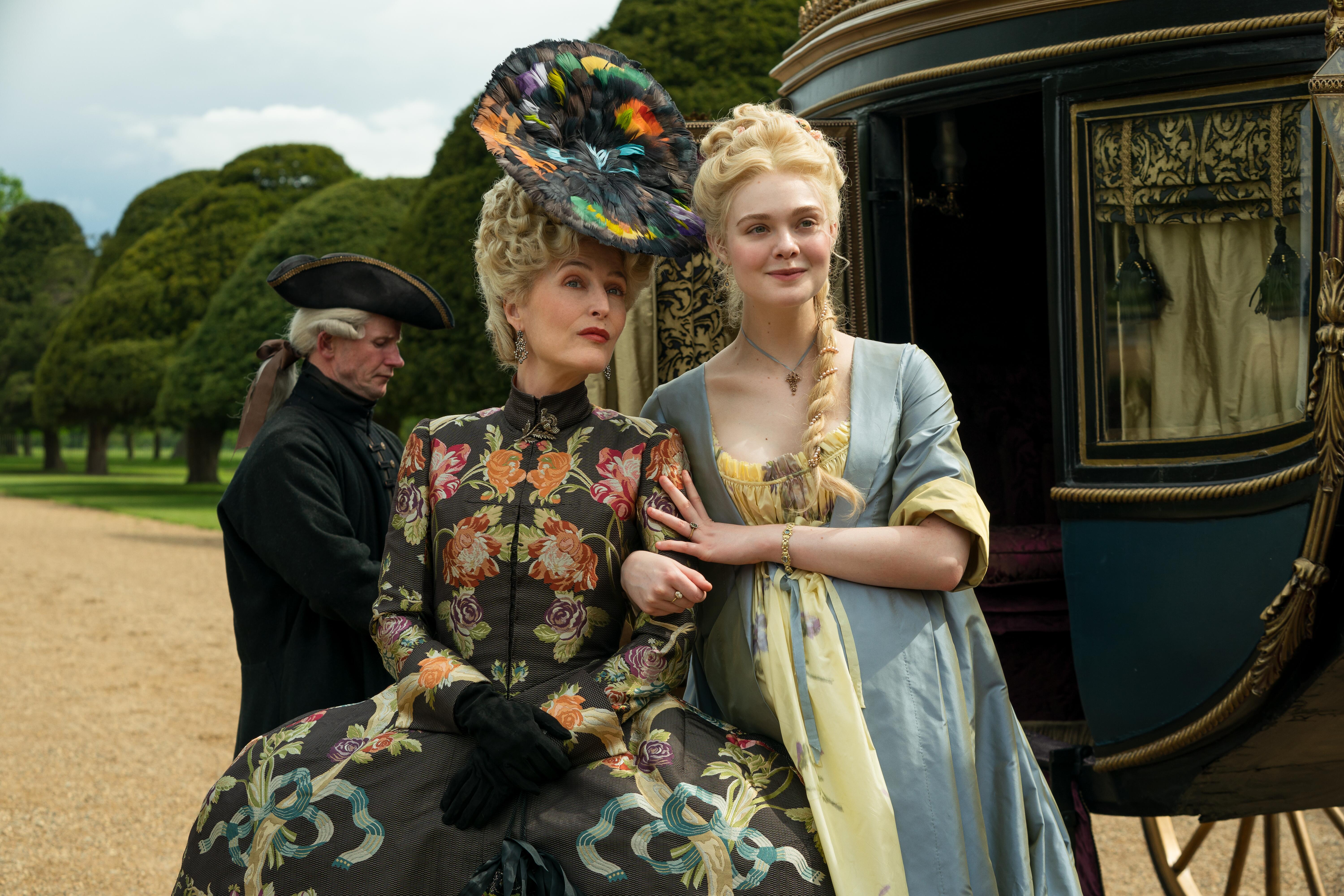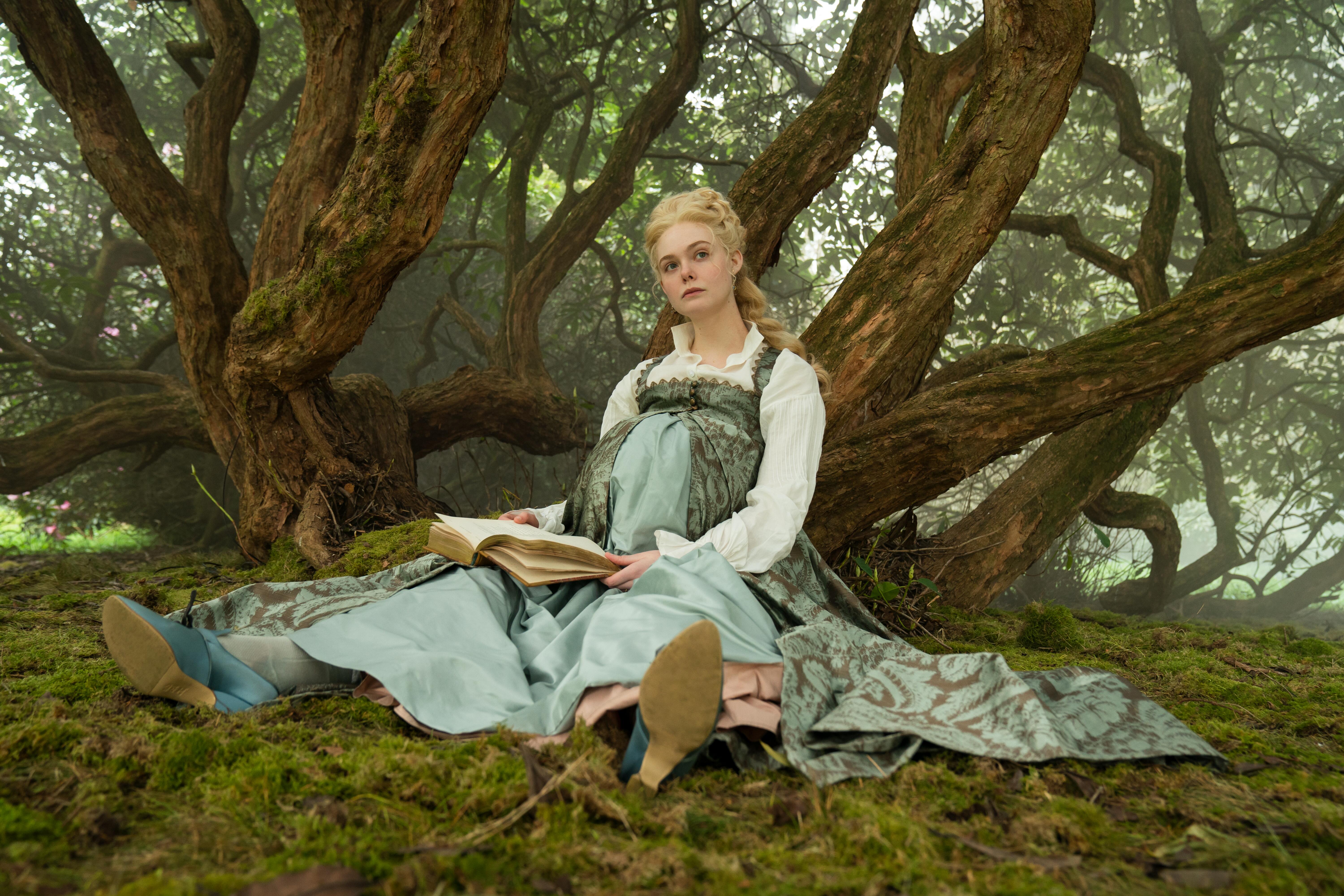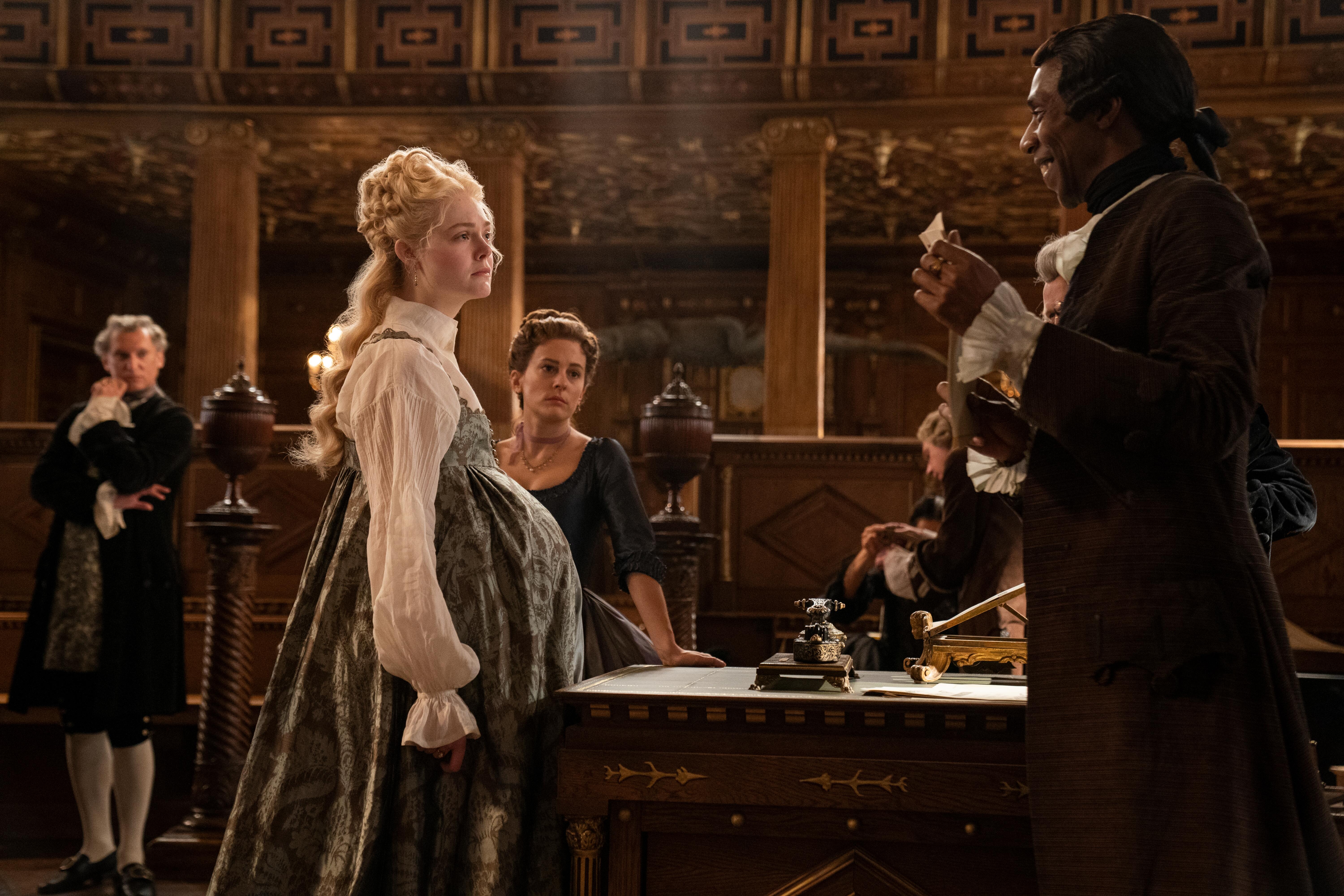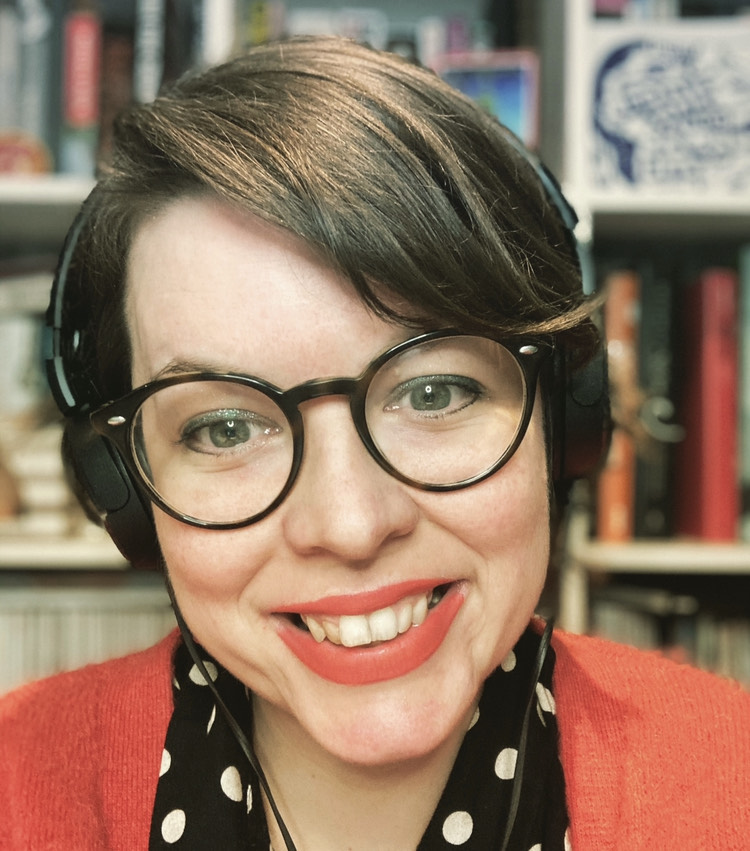Fact vs Fiction: The Great season 2 episode 7, Stapler
There is plenty to fact-check with the arrival of Catherine’s mother — Gillian Anderson...

The latest updates, reviews and unmissable series to watch and more!
You are now subscribed
Your newsletter sign-up was successful
Want to add more newsletters?

ONCE A WEEK
What to Watch
Get all the latest TV news and movie reviews, streaming recommendations and exclusive interviews sent directly to your inbox each week in a newsletter put together by our experts just for you.

ONCE A WEEK
What to Watch Soapbox
Sign up to our new soap newsletter to get all the latest news, spoilers and gossip from the biggest US soaps sent straight to your inbox… so you never miss a moment of the drama!
This post contains spoilers for The Great season 2 episode 7, "Stapler."
Doubts are creeping in about Catherine’s (Elle Fanning) abilities as a leader and her team is beginning to spiral when it comes to her ambitious agenda. The failure to free the serfs — and the violence Catherine’s temporary decree caused — is the reason for this lack of confidence, which calls for a big public spectacle to boost morale. The International Science Tournament is being hosted at the Winter Palace and it is vital for Russia to show off its prowess in this department. Catherine is already under pressure and Enlightenment is fundamental to her platform.
Scientists from other countries have made their way to Russia as part of this competition, and Peter (Nicholas Hoult) takes it upon himself to prove his love for Catherine with an invention that will blow the other entries out of the water. Limited time and a lack of scientific acumen (unless you count the terrifying teddy bear he made in episode 4) ensure that Peter resorts to stealing the invention of the Norwegians. Alas, this plan fails when the disappearance is noted by a special guest.
Pressure to succeed isn’t just so Catherine can save face with the court... her mother Joanna (Gillian Anderson) has come to stay. This arrival sees Catherine snap out of her funk and she literally runs toward her mother’s carriage to welcome her — with a very whimsical personal greeting. Her daughter has been left unmoored by her lack of immediate success. Furthermore, she is relatively close to giving birth, and having her mother at her side is an instant pick-me-up. Well, until Joanna starts nitpicking and the passive-aggressive levels are raised to high.
We separate fact from the very elaborate fiction in each episode of the second season of The Great. This guide continues with an exploration of Catherine’s relationship with her mother and how it differs from what we see in “Stapler.” Plus, how the scientific revolution impacted Russia.
How close was Catherine to her mother?

First of all, Johanna (even the spelling is different in the show) died at the age of 47 in Paris, France two years before Catherine’s coup. Elizabeth was Empress at the time and Catherine had to ask her for money to buy back Johanna’s possessions which she had pawned before she died. Unlike the well-connected and confident woman Anderson plays, the real Johanna was not allowed to reenter Russia after her daughter married Peter. She also did not have three other daughters to marry off to other rulers of countries (as the TV counterpart does). Out of her five children, only Catherine, and her son Frederick Augustus survived into adulthood.
Biographer Virginia Roundingnotes that Johanna “ was always ambivalent” about her daughter — she almost died in childbirth and took 19 weeks to recover. There is a modicum of interest (even if it is self-serving). In reality, Johanna did enjoy the lavish attention during the time she spent in Russia when Catherine was preparing to marry Peter. Anderson’s Joanna also laps up the keen interest of all who meet her, while also dishing out criticism — about everything ranging from the decor to the company her daughter keeps. The real Catherine is quoted as saying her mother “continually made bitter remarks, which did her no good and did not predispose people in her favor.” This is one element The Great writers have captured even if the timeline has been shifted.
The latest updates, reviews and unmissable series to watch and more!
How does Russia factor into the great scientific revolution in the 18th century?

Opening an academy of sciences is one of Catherine’s top priorities in the show, but Peter the Great had already instructed the establishment of the Russian Academy of Sciences — his wife officially opened this building the year after his death, in 1725. Peter the Great was also taken by the Age of Enlightenment and was advised by the German polymath Gottfried Leibniz in the founding of this institution. His extensive travels also laid the foundation for his desire to bring the scientific revolution to Russia and Catherine’s work is a natural succession of this. The role Russia has played in the scientific community stems from two Greats and both Peter I and Catherine are instrumental in what followed.
Empress Elizabeth did not share this vigor for learning and Catherine’s memoir discusses the lack of academic intrigue: “Science and art were never touched on, as everybody was ignorant of those subjects.” Elizabeth as depicted by Belinda Bromilow (who is the MVP of this season) is inclined to believe old wives’ tales (particularly when it comes to Catherine’s pregnancy) but she is also not opposed to broadening her mind.
Did Russia invent the stapler? Or roller coasters?

Time to fact-check the inventions that are featured during the science competition!
The trusty stapler was first patented just over 100 years after this episode is set — by George McGill in 1866. While other staplers had been produced in France during the previous century, the one made by the Novelty Manufacturing Company in Philadelphia is known as the first “true” version of this paper-fastening device.
Dr. Vinodel’s (Julian Barratt) demonstration of the forceps he invented is terrifying for pregnant Catherine, however, obstetric forceps were actually invented in the 1600s and were already in use at the time this episode is set.
It would be 150 years after Catherine’s reign came to an end, that velcro would be first patented — the desire to do away with all those buttons is a valiant quest. Thankfully, Swiss electrical engineer George de Mestral didn’t resort to using tree sap like Katya Velcra (Jane Mahady) did in this episode.
The Russian entry for the science fair is an impressive rollercoaster. Surprisingly, this is based on historical fact. The first known rollercoaster is believed to originate in Russia from sled rides (called Russian Mountains) in the 1600s, which gained popularity the following century before the craze spread across Europe. Catherine was said to have one constructed at the Oranienbaum royal residence and was the first to put the rollers on this ride in 1784.
The Great season 2 is available to stream (in its entirety) on Hulu in the US. In the UK episodes air weekly on Channel 4 in the UK.
More The Great Fact vs Fiction
- The Great season 2 episode 1 Fact vs Fiction: Head's It's Me
- The Great season 2 episode 2 Fact vs Fiction: Dickhead
- The Great season 2 episode 3 Fact vs Fiction: Alone At Last
- The Great season 2 episode 4 Fact vs Fiction: The Devil’s Lunch
- The Great season 2 episode 5: Fact vs. Fiction
- The Great season 2 episode 6: A Simple Jape — Fact vs. Fiction
- The Great season 2 episode 8: Five Days — Fact vs Fiction
- The Great season 2 episode 9: Walnut Season — Fact vs Fiction
- The Great season 2 episode 10: Wedding — Fact vs Fiction
Emma Fraser spends most of her time writing about TV, fashion, and costume design; Dana Scully is the reason she loves a pantsuit. Words can also be found at Vulture, Elle, Primetimer, Collider, Little White Lies, Observer, and Girls on Tops. Emma has a Master’s in Film and Television, started a (defunct) blog that mainly focused on Mad Men in 2010, and has been getting paid to write about TV since 2015. It goes back way further as she got her big start making observations in her diary about My So-Called Life’s Angela Chase (and her style) at 14.


